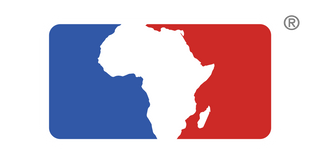Zambia has formally requested a financing arrangement with the International Monetary Fund (IMF) to deal with its debt crisis, the Fund said in a statement on Tuesday. The IMF is “currently assessing this request,” it said.
The administration of President Edgar Lungu released a photo showing him in a meeting with officials of the IMF in the capital, Lusaka. According to Reuters, Zambia officials have been tight-lipped on what was discussed at the meeting.
The request for assistance from the IMF follows a rocky relationship between the Fund and the Zambia government. However, Reuters cited the country’s finance minister, Bwalya Ng’andu, as saying that the government had been in talks with the Bretton Wood institution over an “appropriate policy instrument” to help manage its debt.
The copper-producing nation became the first African country to default on its loan repayment, totaling $3 billion, due to the coronavirus pandemic.
Zambia issued three sovereign debt instruments before COVID-19; the first being a $750 million debt instrument with a 5.375% interest, the second being a $1 billion debt instrument with 8.5%, and the third being 1.25 billion with 8.9% interest.
The suspension of the loan repayment covered three upcoming interest payments on debts due on October 14 this year, January 30 and March 20 next year. The country says its inability to honor its debt commitment is because of challenging macroeconomic and fiscal situations “aggravated by the COVID-19 crisis that has severely affected the country’s public finances.”
The Finance Ministry added that a combination of declining revenues and increased unbudgeted costs caused by the COVID-19 has affected its available resources to make timely payments on its indebtedness leading to increasing debt-servicing difficulties.
Zambia, Africa’s second-largest producer of copper, has accumulated foreign debt of $10 billion over the past decade. The drastic fall in copper price has strained the country’s finances and stalled economic growth, which grew at an average of 6.8% between 2000 and 2014. The country’s public debt reached 80 percent of GDP in 2019 from 35 percent at the end of 2014.
The South African country is not the only nation taking steps to default on loan payments. Argentina reached an agreement with its creditors to restructure $65 billion of its foreign debt.
Ever since the outbreak of COVID-19 and the imposition of restrictions on movement, African Finance Ministers have called for the suspension of debt interest payments so as to free fiscal space for critical investment in health to contain the spread of the virus.
Some African Heads of State have even called for the complete forgiveness of all bilateral and multilateral debt.
According to the Mo Ibrahim Foundation, calls for debt relief are complicated by Africa’s range of creditors. Of all Africa’s external interest payments, 55% are made to private creditors while only 17% are made to multilateral institutions, with the same figure going to China.
Mo Ibrahim Foundation further noted that before COVID-19, as many as 30 African countries spent more on repaying public debt than on healthcare. The Gambia, for example, spends as much as nine times its health budget on debt servicing, while Angola and Congo spend six times.
Nigeria, damaged by the collapse in oil prices, has secured a $3.4 billion loan from the IMF, having resisted borrowing from the organization for years. It has also requested a further $3.5 billion from the World Bank.
Egypt, hurt by a lack of tourism revenue and decreased trading through the Suez Canal, has received $2.8 billion from the IMF and is seeking a further $5 billion to account for the coronavirus-induced budget shortfall.


